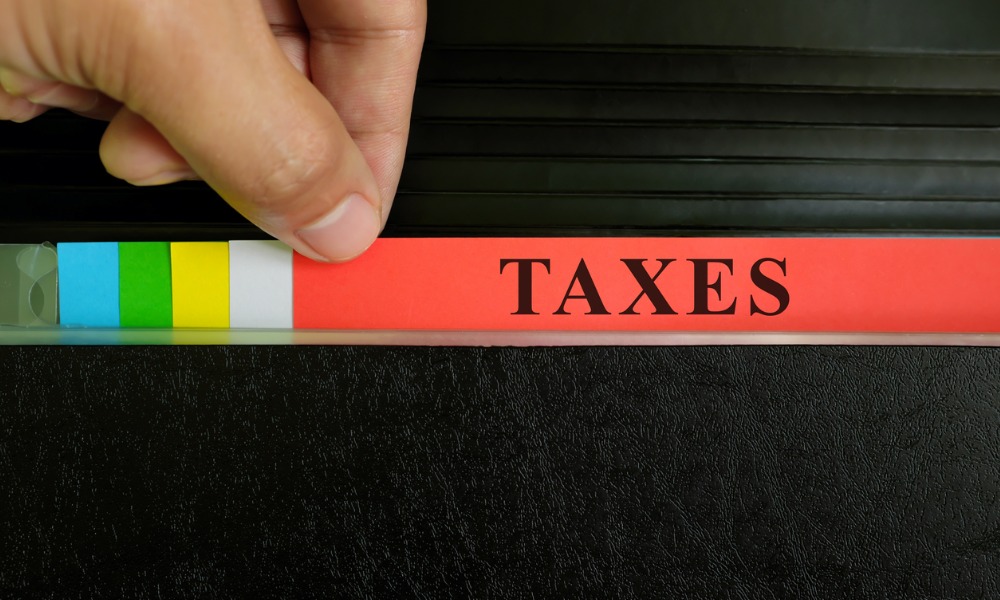Under our tax laws, individuals are required to file their own income tax returns – and the same goes with corporations in Canada.
Whether you’re operating a business in the country, or a company that is covered by Canadian tax laws, it’s important to know these steps of filing corporate taxes.
This will not only prevent you from having brushes against the law, but also to ensure that your business can carry on its operations smoothly and peacefully.
What is the process of filing corporate taxes in Canada?
Filing corporate taxes must be done with the Canada Revenue Agency (CRA).
It’s important to know first if you’re required by law to file a corporation income tax return. Next is knowing when and how to file your return.
It’s also important that you know how and where to pay corporate income tax.
Who are required to file corporate taxes
Resident corporations, and in some cases, non-resident corporations, must file their corporation income tax return through the T2 Corporation Income Tax Return (T2 return).
The federal Income Tax Act (ITA) does not define what exactly is a resident corporation. However, the CRA has provided some guidelines according to common law when distinguishing it from a non-resident corporation:
- resident corporation:
- incorporated in Canada under Canadian corporation laws
- deemed resident under common law because its central management and control is exercised in Canada
- non-resident corporation:
- deemed resident under common law, but is a resident of another country under a tax treaty
All Canadian corporations are required to file corporate income tax returns, even if there is no tax payable.
How to file a corporate income tax return
There are two ways of filing corporate taxes in Canada:
- electronic filing: by using a CRA-certified software
- paper submission: by using a T2 Corporation Income Tax Return or a T2 Short Return
The ITA requires that if your corporation’s annual gross revenue is more than $1 million, you’re required to file your T2 return electronically. The corporations exempt from this rule are:
- insurance corporations
- non-resident corporations
- corporations reporting in functional currency
- income tax-exempt corporations
Registering for a My Business Account with the CRA is the first step to electronically file and pay your corporate taxes. Watch this video to learn more:
If you’re from Manitoba, you can also consult with the best corporate tax lawyers in Manitoba as ranked by Lexpert to learn more about filing corporate taxes.
Best practice when filing corporate taxes
Filing your corporate tax returns in Canada is required by law, or you will be penalized by the CRA as stated by the ITA. Consult a corporate tax lawyer if you have any problems with your corporate tax returns.
Here are some of the best practices in avoiding mistakes when filing your corporate tax returns:
Know your tax deadlines
Tax deadlines are crucial when filing corporate taxes in Canada. Late filings will result in a penalty by the CRA.
Under the ITA, you must file your corporate tax return within six (6) months of the end of each corporate tax year.
There are 2 rules to follow when figuring out the deadline of your corporate tax return:
- If the tax year ends on the last day of a month: filing due date is the last day of the sixth month after the end of the tax year
- If the tax year ends not on the last day of a month: filing due date is the same day of the sixth month after the end of the tax year
If the filing due date falls on a Saturday, Sunday, or a public holiday recognized by the CRA, tax returns must be received on or before the next business day.
Determine your proper corporate tax year
In Canada, the tax year of a corporation is its fiscal period. Here are some rules to follow:
- the start of a corporation’s first tax year is its date of incorporation
- the start of a corporation’s subsequent tax years is the day after its tax year end
- a corporation’s tax year cannot be longer than 53 weeks or 371 days
- a corporation’s tax year is the same every year, unless an application for it to be changed is approved by the CRA
Consider your provincial and territorial tax requirements
Aside from the federal tax requirements by the CRA, you must also consider the tax requirements of your province and territory.
For example, if you’re in Alberta or Québec, you must also submit the following returns, in addition to the T2 return for the CRA:
- Alberta: AT1 – Alberta Corporate Income Tax Return
- Québec: CO-17 Corporation Income Tax Return
While you can file your corporate tax either in person or online, there are cases when you’re specifically required to file it electronically, as mentioned above. The penalty when violating this rule is $1,000.
What happens if you don't file your corporate taxes in Canada?
There are penalties for the late filing of corporate income tax returns:
- 5% of your unpaid tax that was due on the filing deadline
- plus 1% of your unpaid tax for each complete month that your tax return is late, which can accumulate for up to maximum of 12 months
You can be charged with a larger penalty rate. This happens if the CRA issued a demand to file your return, and you were assessed that you failed to file a return for any of the last three (3) years.
In this case, the penalty rates will now become:
- 10% of your unpaid tax that was due on the filing deadline
- plus 2% of your unpaid tax for each complete month that your tax return is late, which can accumulate for up to maximum of 20 months
These penalties only pertain to the late filing of corporate taxes. There are other penalties under the ITA related to other offences. This includes false statements, omissions, and misrepresentations in the filing of corporation income tax returns.
For other topics under filing corporate taxes, reach out to one of the Lexpert-ranked best Canadian corporate tax lawyers.





